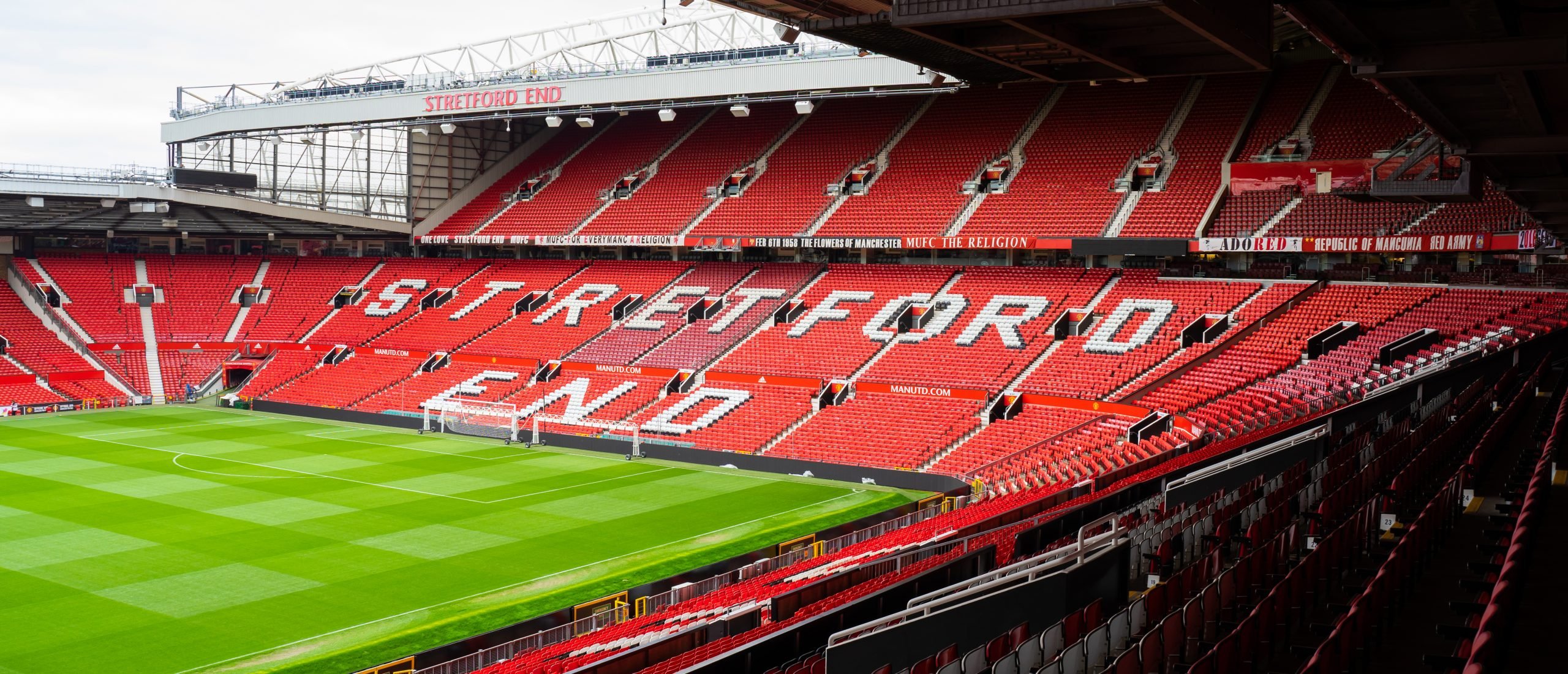The potential takeover of Manchester United has been closely followed by football fans across the world in recent months. Bringing hope of a renewed era at the club, it has also highlighted the challenges of managing a business alongside the possibility of a future change in ownership.
In our latest ‘5 minutes with Corporate Finance’ article, Josh Gurton, Corporate Finance Assistant Manager, explores the key issues surrounding the sale of one of the world’s most famous football clubs and what we can learn about navigating ownership changes in private mid-market transactions.

As a professional working in M&A whose passion is sport, I have found the story surrounding Manchester United and their ongoing ‘exploration’ of a sale entertaining to follow. Whilst the sale of a huge institution such as Manchester United is not your typical transaction, the process can be related to the private mid-market transactions that we specialise in at PKF Smith Cooper.
The Glazer family’s leveraged buyout and its impact on United
For those reading who are not familiar with Manchester United’s story, in November 2022 the Glazer family announced that they were considering a sale of their shares in the football club. This was for many Manchester United fans what they thought was the long hoped for start of a new era.
The Glazers acquired their shares in 2005, valuing United at approximately £800m, through a leveraged buyout using approximately £540m in debt. At the time, Manchester United were at the pinnacle of sporting success, with Wayne Rooney and Cristiano Ronaldo playing under the legendary manager Sir Alex Ferguson. This seemed to change in 2013, and since then Manchester United have failed to win the Premier League and have had 8 different managers.
Continued dividend payments and underinvestment in the club
Whilst the sporting difficulties are widely known, it is the Glazer family’s business decisions that have caused the most anger with fans. Despite the high cost of servicing debt and underperformance on the pitch, the Glazers have continued to take dividends out the club (£34m in 2021). Fans claim that the stadium and training facilities have been underinvested in and are falling behind those of league rivals.
There are now questions as to whether the looming sale is hindering United’s performances on the pitch. When the Glazers announced they were “exploring a potential sale”, the world turned its eyes to the sales process, which saw Jim Ratcliffe, owner of INEOS, and a Qatari investment fund stating their interest early on. Whilst it is not uncommon for M&A transactions to last for up to 12 months, it is very rare for employees and customers (or fans in the case of United) to know about an impending transaction.
The impact of a potential sale on Manchester United
Private M&A transactions are typically kept confidential as they can be distracting to the normal running of the business and performance can suffer as a result. This can affect value and buyers’ interest in the company but also leave the business in a worse position should a sale not take place.
In the case of United, the negative noise surrounding the sale also seems to be affecting staff morale, which may even have triggered recent issues at the club, such as the public disagreement between current manager Erik Ten Hag and player Jadon Sancho.
With a potential sale taking place, investment decisions are also often delayed, which can damage the value of the business. The fans probably assume that in recent years the Glazers wanted to retain as much cash as possible rather than dedicate further investment into the Manchester United team. If this is the case, then such a strategy is likely to lower a potential purchaser’s valuation of the club, as the purchaser will have to carry out this investment post-transaction.
When buying a business, a purchaser is essentially buying its future cash flows and knowing there is a need for big cash outflows early in the new ownership can significantly lower valuations. Saving cash now may mean that the Glazers are losing future cash from a future sale, which could also impact Manchester United’s team performance.
In M&A transactions it is important to stay flexible and react to the latest developments. In private mid-market transactions specifically, the ‘cloak’ of confidentiality allows advisers to stay flexible and design a transaction that will drive competitive tension (by attracting multiple potential acquirers) and maximise the company’s value. United’s M&A advisors have not had the luxury of this confidentiality.
In all types of transaction, it is important for shareholders to know what they want to achieve from the transaction. This will mean that advisors can make sure that any future ownership structure meets those objectives, whether that is de-risking (reducing the amount of equity in the business) or stepping away from the business entirely. This should take place before any process begins so that potential bidders are not affected by indecision and advisors supporting the deal can design transactions accordingly.
What can we learn from the ongoing saga at Manchester United?
- Confidentiality is important – Confidentiality surrounding a potential transaction, both internally and externally, will ensure that the business operations continue as normal and staff are not distracted by talks of changes in ownership. Allowing specialist advisors to take control of the transaction process also ensures that shareholders are not taken away from the running of the business.
- Investment pre-transaction may increase returns – Though it might seem counterintuitive, investing in a business before you sell can increase a purchaser’s valuation of that company. As long as the investment does not limit your prospective purchasers, investment can create a platform for future growth, which the purchaser can benefit from.
- Set objectives – There are infinite variations of potential M&A transactions, from receiving debt funding to selling 100% of the equity. It is important that shareholders know what they want to achieve from a transaction. This way advisors can design and flex a transaction to ensure that shareholders’ objectives are achieved.
Mid-market support from one of the UK’s most active advisory teams
At PKF corporate finance, we start working with shareholders early to maximise value. We can help you determine what you want to achieve and assist you in preparing your business for a potential transaction. Our bespoke processes increase value and achieve objectives, whilst protecting business operations from any disruption caused by a potential transaction.
As one of the largest corporate finance houses in the UK, PKF complete c.150 deals annually, worth over £2bn in total value. Get in touch with us for an initial consultation with our expert advisors and find out how we can add value to your transaction.




